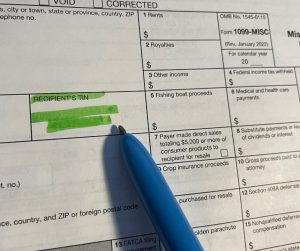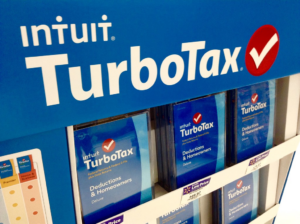Dealing with Contractors or Vendors Refusing to Provide a W-9 for a 1099: A Comprehensive Guide
In the realm of business and finance, navigating the complexities of tax compliance is an indispensable part of maintaining a transparent and legitimate operation. The issuance of Form 1099 is a crucial aspect, especially when dealing with contractors or vendors who provide services to your business. However, situations can arise where a contractor or vendor refuses to provide a W-9 form, leaving you in a conundrum of tax uncertainty. In this comprehensive guide, we delve into the intricacies of handling such scenarios, ensuring that you have the knowledge and tools to address these challenges effectively.Understanding the Significance of Form W-9 and Form 1099
Before delving into the nuances of contractors or vendors refusing to provide a W-9, it’s imperative to grasp the importance of these forms. A Form W-9, formally known as the Request for Taxpayer Identification Number and Certification, is utilized to collect essential information from contractors or vendors, including their taxpayer identification number (TIN) or Social Security Number (SSN). This information is vital for accurate reporting of payments made to these entities. On the other hand, Form 1099 serves as a record of payments made to contractors or vendors, which is crucial for both the payer (your business) and the payee (contractor/vendor) when filing taxes. It ensures that the income earned by contractors or vendors is appropriately reported to the IRS, preventing potential tax evasion issues.The Potential Implications of a Missing W-9
When a contractor or vendor refuses to provide a W-9 form, it can lead to a series of complications that have the potential to impact your business. Without a valid W-9, you might face challenges in accurately reporting payments on Form 1099. This, in turn, could trigger IRS audits, penalties, and legal disputes. It’s vital to understand that obtaining the necessary information through a W-9 is a legal obligation, and failing to comply can lead to serious consequences.Strategies for Addressing W-9 Refusals
1. Open Communication Channels
Initiating a transparent and open line of communication is often the first step in addressing W-9 refusals. Reach out to the contractor or vendor and inquire about the reasons behind their hesitation. Understand their concerns and offer reassurances regarding the security and privacy of their personal information.2. Explain the Importance
Educate the contractor or vendor about the significance of providing a W-9. Explain that accurate tax reporting is beneficial for both parties and ensures compliance with IRS regulations. Highlight that their cooperation aligns with maintaining the integrity of their business dealings.3. Provide Alternatives
In some cases, contractors or vendors might be hesitant due to concerns about sharing personal information. In such scenarios, consider offering alternatives, such as using secure online platforms for document sharing or even arranging an in-person meeting to collect the necessary details.4. Hire a Private Investigator
If efforts to obtain a W-9 are unsuccessful and legal counsel is not an option you wish to pursue, you can explore hiring a private investigator. A private investigator can find someone’s social security number. These professionals specialize in finding information that might be hard to obtain through traditional means. While this approach can be effective, it’s essential to ensure that it aligns with legal and ethical guidelines.Conclusion
In the intricate landscape of tax compliance, the refusal of a contractor or vendor to provide a W-9 form can present challenges. By following a strategic approach that emphasizes communication, education, and considering alternative options, businesses can navigate these challenges with confidence. Ensuring the accurate reporting of payments through Form 1099 is not only a legal obligation but also a cornerstone of maintaining ethical business practices. Remember, addressing W-9 refusals proactively contributes to the long-term success and reputation of your business in the eyes of both the IRS and the contracting community.
Dealing with Contractors or Vendors Refusing to Provide a W-9 for a 1099
Dealing with Contractors or Vendors Refusing to Provide a W-9 for a 1099: A Comprehensive Guide In the realm of business and finance, navigating the complexities of tax compliance is

How To Get A Wage Garnishment for an Employee of Fidelity National Title Company in Roseville CA
Share on facebook Facebook Share on twitter Twitter Share on linkedin LinkedIn Share on pinterest Pinterest Share on reddit Reddit Share on telegram Telegram California Private Investigator Lance Casey is

Private Investigator Finds 1000 Websites with Hacked Credit Card Numbers with CVV and Zip Code For Sale
Hacked Credit Card Numbers with CVV and Zip Code Private Investigator Finds 1000 Websites with Hacked Credit Card Numbers with CVV and Zip Code For Sale My name is Lance

How To Get Someone’s Social Security Number For Child Support
Share on facebook Facebook Share on twitter Twitter Share on linkedin LinkedIn How To Find A Social Security Number For Child Support Why Is Child Support Application Asking For Social

Can I Send A 1099 Without A Social Security Number
Share on facebook Facebook Share on twitter Twitter Share on linkedin LinkedIn Do You Need Social Security Number For 1099? My name is Lance Casey and I am a private

How Do You Get Someone’s Social Security Number If The TurboTax 1099-MISC Form Generator Won’t Allow You To Leave The SSN Box Empty?
Do You Need To Get Someone’s Social Security Number? As long as you have a permissible purpose to get someone’s SSN, all we will need is their full name, age